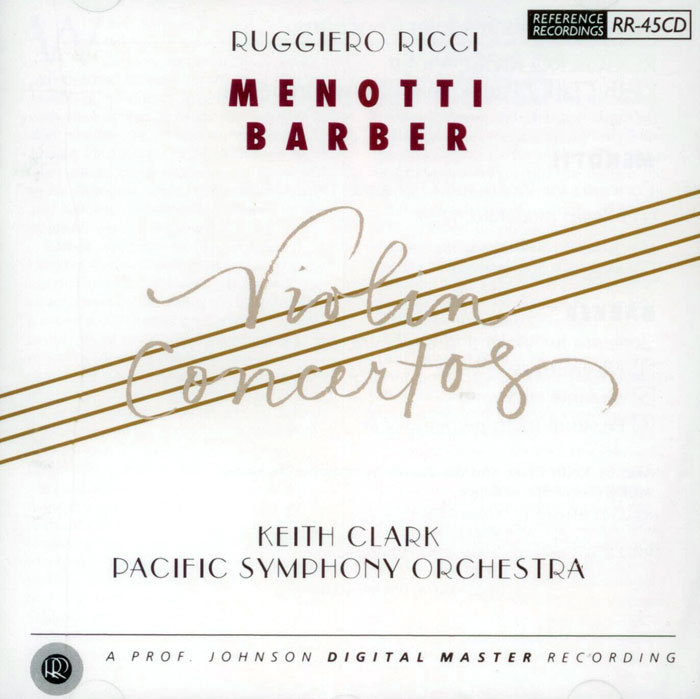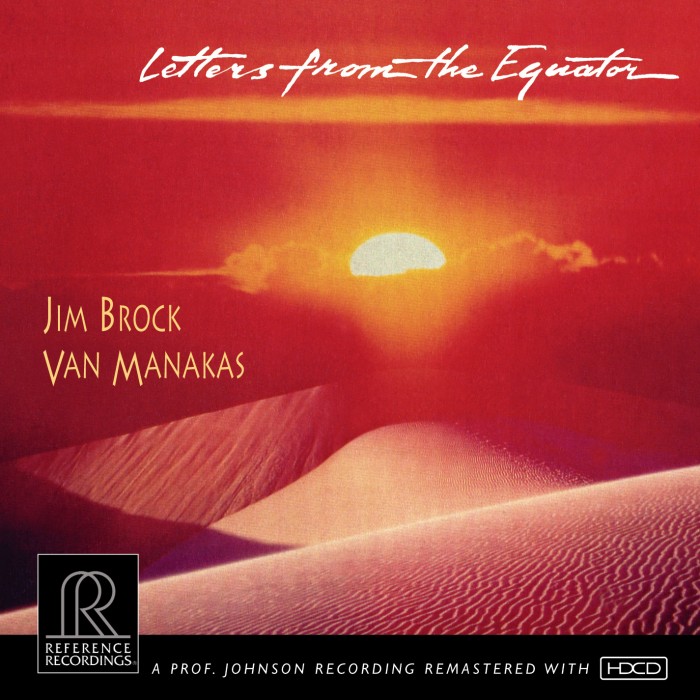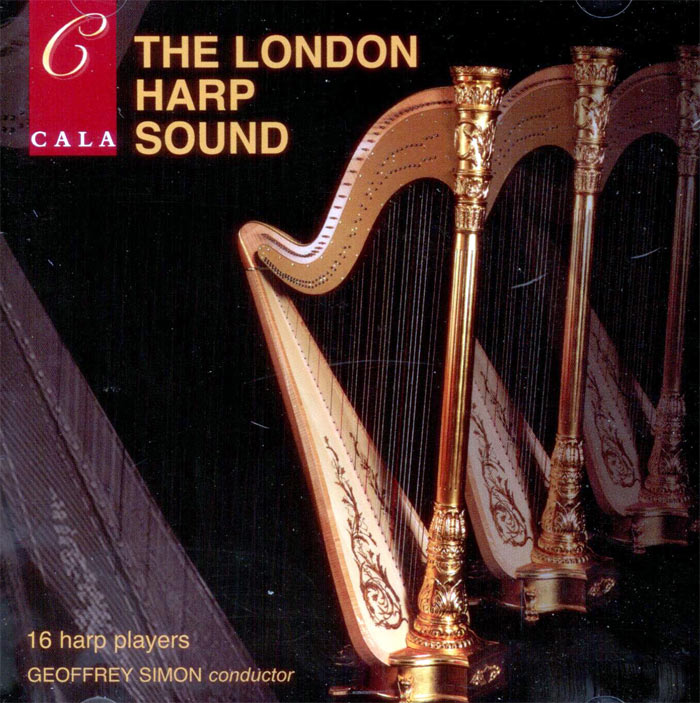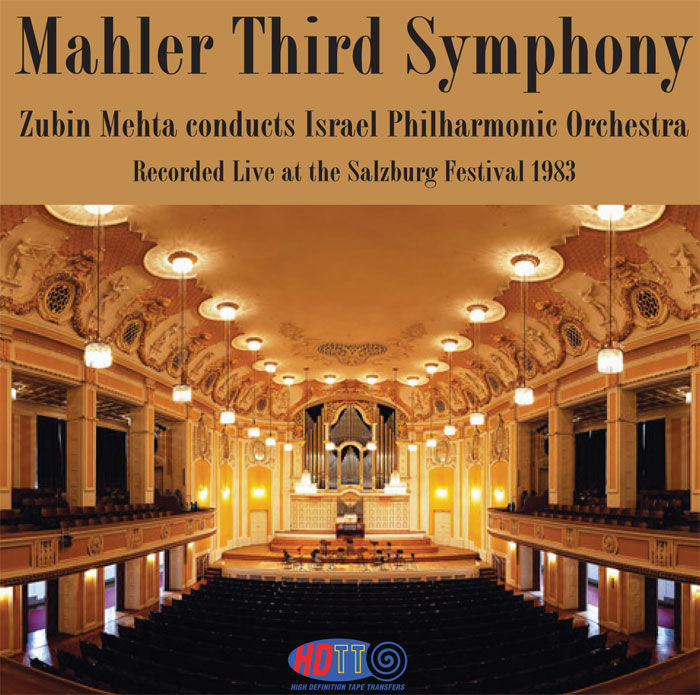Logowanie
Dziś nikt już tak genialnie nie jazzuje!
Bobby Hutcherson, Joe Sample
San Francisco
SHM-CD/SACD - NOWY FORMAT - DŻWIĘK TAK CZYSTY, JAK Z CZASU WIELKIEGO WYBUCHU!
Wayne Shorter, Freddie Hubbard, Herbie Hancock, Ron Carter, Elvin Jones
Speak no evil
UHQCD - dotknij Oryginału - MQA (Master Quality Authenticated)
Chesky! Niezmiennie perfekcyjny
Winylowy niezbędnik
ClearAudio
Double Matrix Professional - Sonic
najbardziej inteligentna i skuteczna pralka do płyt winylowych wszelkiego typu - całkowicie automatyczna
MENOTTI, BARBER, Ruggiero Ricci, Keith Clark, Pacific Symphony Orchestra
Violin Concertos
- MENOTTI: Concerto for Violin, 1952;
- 01. Violin Concerto - Allegro Moderato (12:30)
- 02. Violin Concerto - Adagio (7:40)
- 03. Violin Concerto - Allegro Vivace (7:49)
- BARBER: Concerto for Violin, Op. 14.
- 04. Violin Concerto - Allegro (11:55)
- 05. Violin Concerto - Andante (9:38)
- 06. Violin Concerto - Presto in Moto Perpetuo (4:14)
- (CDTT: 53:46)
- Ruggiero Ricci - violin
- Keith Clark - conductor
- Pacific Symphony Orchestra - orchestra
- MENOTTI
- BARBER
Ostatnie egzemplarze!
Niebywale rzadkie, przez wiele lat - jedyne - nagranie wspaniałego koncertu skrzypcowego Menottiego. The Menotti was premiered by Efrem Zimbalist on 5/6 December 1952 with the Philadelphia conducted by Ormandy. It is an aristocratically romantic work with not a hint of over-the-top romance. You need have no fears that this is going to be as luxuriant as the Korngold of five years previously. The romanticism is flowingly done by Ricci without the shrill fire of the 1955 LP recording (Tossy Spivakovsky with the Boston SO conducted by Charles Munch). The first movement is glowingly melodic and though marginally over-stretched it uses a rather lovely idea. The second movement is reflective of course and here the links with its disc-mate, the Barber concerto, come over strongly. The work is old-fashioned and its kinship is with Sibelius and Tchaikovsky. Only in this middle movement, with its slightly discordant fanfares, does a feint whiff of modernism enter the proceedings, soon dispelled (3:53) by a tentative French après-midi interlude. This in turn gives place to a quicksilver cadenza melting back into an episode of veiled beauty carried by ecstatic strings. The playful finale has hints of the Prokofiev first concerto. The shade of Balakirev's Tamara appears (2:00) in the form of a slave dance as the violin sings with reserve and rapt adoration over rhythmic drumming. If you like romantic violin concertos (Tchaikovsky, Sibelius, Barber, Ivanovs, Karlowicz) you are seriously missing out if you do not hear this. A classic of the twentieth century. Almost fifteen years before the Menotti premiere, the Philadelphia and Ormandy partnered Albert Spalding in the first performance of the Barber Concerto, a work that has held its place in the repertory and for a while was represented by the CBS LP. Of course we are not short of performances of the Barber Concerto. This one is given a reflectively nostalgic rather than a hectically quick-fire performance. Do not misunderstand: there are fireworks but a longer view is the hallmark of the approach. Listen for example to the long drawn pause out in the first movement at 3:58. This is daringly slow but Ricci and his conspirators succeed and at the same time lay bare the bones of the Barber work more effectively than many a hot-shot performance. The contours are warmly detailed and the colours give off a luminescence which is only hinted at elsewhere. Ricci's half-hooded tone at 11:03 is compulsively listenable. The slow movement is played lingeringly; somehow like a lover's wondering watch in the depths of a moonlit night over the sleep of their partner. (Sorry for the fanciful language; it is that sort of work.) The oh-so-hesitant distant fanfares in the centre of the movement inject a moment's foreboding but all settles back again into the nightwatch. The flighty presto has the same qualities and here the steady hand caused me a few misgivings. It could have done with greater speed. While noticeably quick it is clear that Ricci is taking his time to admire and suffuse the landscape with his own colours and textures. Once again however there are real gains in the definition of ideas. All too soon the movement ends but then this movement always struck me as too perfunctory (even at this speed) by comparison with its predecessors. The technical side is lovingly handled by Reference Recordings who clearly relished Ricci's mesmerically detailed approach. If you have rather tired of dash, rush and flashy stridency in this work then this is the disc for you. I quibble over playing time which seems short by the side of many issues these days. The musical and technical quality is however undeniable. This will be the connoisseurs' recording of choice in years to come. A sleeper in relation to the Barber and an enduring hit in the case of the unfairly neglected Menotti. Now how about a disc of the Menotti concertos including the piano concerto and the triple concerto? Reviewer Rob Barnett https://www.musicweb-international.com/classrev/Apr99/MENOTTI.htm






































